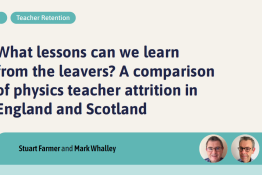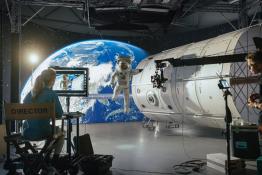What do in-service teachers believe about the aims of science education?
Issue 394 | Page 25 | Published Jul 2025
Description
Thomas H. Y. Tam and Helen Gourlay explore how science teachers’ beliefs influence their practice in the classroom.
References
British Educational Research Association (2018) Ethical Guidelines for Educational Research. 4th edn. London: BERA. www.bera.ac.uk/publication/ethical-guidelines-for-educational-research-2018
Garrett, C. and Hetherington, L. (2024) Becoming a science teacher. In Learning to Teach Science in the Secondary School, 5th edn., ed. Hetherington, L., Graham, L. and Moore, D. Ch. 1. London: Routledge.
Harlen, W. (2018) Aims and approaches of good science education. In ASE Guide to Secondary Science Education, 4th edn., ed. Banner, I. and Hillier, J. Ch. 1. London: Association for Science Education.
Mansfield, J. and Reiss, M. J. (2020) The place of values in the aims of school science education. In Values in Science Education, ed. Corrigan, D., Buntting, C., Fitzgerald, A. and Jones, A. pp. 191–209. Switzerland: Springer Cham. https://doi.org/10.1007/978-3-030-42172-4
Osborne, J. (2010) Science for citizenship. In Good Practice in Science Teaching: What Research Has to Say, 2nd edn., ed. Osborne, J. and Dillon, J. Ch. 3. Maidenhead, Berks: Open University Press.
Oxford University Press (2021) The Evolution of Science Education. Oxford University Press. www.oup.com.au/__data/assets/pdf_file/0028/186832/The-evolution-of-science-education-Oxford-University-Press.pdf
Reiss, M. J. and White, J. (2014) An aims-based curriculum illustrated by the teaching of science in schools. The Curriculum Journal, 25(1), 76‑89.
Rudolph, J. L. (2023) Why We Teach Science: and Why We Should. Oxford University Press.
More from this issue
TIMSS is a large-scale four-yearly international assessment of mathematics and science performance, attitudes and reported experiences. TIMSS...
This article draws on the studies into why physics teachers in England and Scotland had left teaching (Farmer and Whalley, 2025; Whalley, 2024)...
Michael Hal Sosabowski suggests critically analysing science in films to encourage healthy scepticism.
References
...




